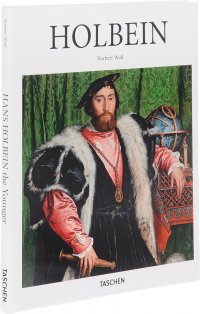Religion, Renaissance, and Reformation - these three ideologies shaped the world of 16th-century portraitist Hans Holbein the Younger, a pivotal figure of the Northern Renaissance, whose skills took him to Switzerland, Belgium, Italy, and England, and garnered patrons and subjects as prestigious as Henry VIII, Thomas More, Anne of Cleves, and Reformation advocate Thomas Cromwell.
While he started out with, and maintained, a repertoire of religious works, Holbein is regarded above all as one of the greatest portraitists in Western art history. His probing eye was matched with a draftsman mastery of line and an almost supernatural ability to control details, from the textures of luxurious clothing to the ornament of a room. He combined this meticulous mimesis with an inspired amalgam of regional painterly traits, combining Flemish-style realism, late medieval German composition, and Italian formal grandeur to astonishing effect.
During his time in England, Holbein became official court painter to Henry VIII, producing both reformist propaganda and royalist paintings to bolster Henry' status as monarch and as the new Supreme Head of the Church following the English Reformation. His portrait of Henry from 1537 is regarded not only as a portraiture pinnacle but also as an iconic record of this transformative monarch and the Tudor dynasty. Through this turbulent period, Holbein also produced anti-clerical woodcuts, and sketched and painted Lutheran merchants, visiting ambassadors, and Henry's notorious succession of wives.
In this Basic Art introduction, we survey some of Holbein's key works from his illustrious and international career. Along the way, we discover a period as ripe with artistic innovation as with courtly drama and radical religious change, and an artist who made as much of a historical mark as the subjects he painted. Это и многое другое вы найдете в книге Hans Holbein the Younger (Norbert Wolf)
